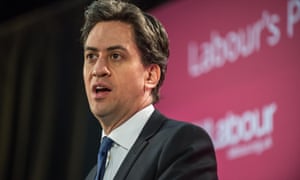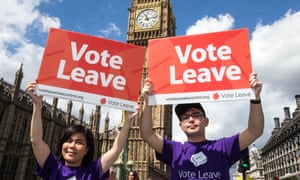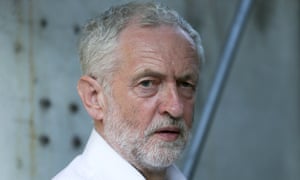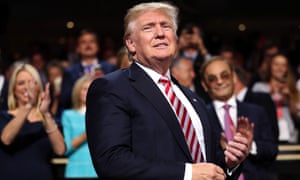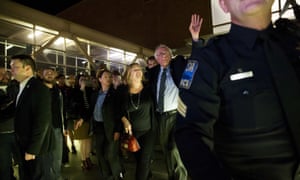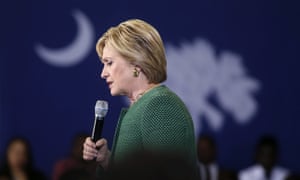All political lives . . . end in failure”. Enoch Powell’s memorable line resonates 40 years on not only because it seems so true, but because it was underscored by his own career. A brilliant academic, a decorated soldier and a reforming health minister, Powell was set for the highest office until the racist “Rivers of Blood” speech exiled him to the Commons backbenches and eventually to Northern Ireland as an Ulster Unionist MP.
Yet despite the well-known arc of triumph to tragedy, the time has surely come to revisit his dictum — for Powell is the politician who dominates our age as no other does. The arguments that he articulated in the 1960s and 1970s resonate across the world. On the one hand, the seemingly unstoppable rise of the populist right, from France’s Marine Le Pen to Hungary’s Viktor Orban. On the other, the abiding split on Europe within the Conservative party that no leader has ever healed. The age of Brexit is the age of Powell.
Why? First, British politics is dominated by immigration, a discussion conducted in terms that could have been drawn straight from the book of Powell. His infamous 1968 speech is still deeply disturbing to read but its tropes are all too recognisable.
There is the obsession with numbers. Powell asks that since “it be not wholly preventable, can it be limited?” — a view that has its echo in the current Tory government’s fixation on cutting net migration to tens of thousands. There is the argument, too, of the pressure on public services. And there is the acceptance that UK residents are the victims of immigration: “The . . . sense of alarm and resentment lies not with the immigrant population but with those among whom they have come and are still coming.” The eugenicist strand is all that is missing from contemporary politics.
Arguments which were so repellent and unacceptable that Powell was sacked from the Tory shadow cabinet have become mainstream. Paradoxically, it was the migration of white Christians from eastern Europe after 2004 that proved the political tipping point in the UK, legitimising a discourse about immigration that claimed to be about culture rather than race, but had clear roots in Powell’s racism. All this despite the fact that the apocalyptic visions of Powell were refuted by the reality of modern Britain. When Prince Harry marries Meghan Markle next year, the Royal Family will, like so many families, have a mixed race member. That success is a measure of just how wrong Powell got his predictions.
Yet, arguments are one of the great political legacies — and while Powell lost in fact, he has won in rhetoric. The Brexit Leave vote was not just due to his argument but also to the cowardice of leaders of both main political parties in not challenging outright untruths about migration. Powellite arguments were marshalled against one of the institutions he most strongly opposed, the EU. It was Enoch wot won it.
Finally, Powell would appreciate the irony that his once mighty Conservative party is being propped up in power by the Ulster Unionist’s usurpers, the Democratic Unionist party. The narrow views of a political party from Northern Ireland hold the whip hand in the most important peace time negotiations ever undertaken by the UK.
The observation that all political careers do not end in failure is not restricted to the right of British politics. It is not merely that Jeremy Corbyn spent decades in the wilderness before increasing votes for the Labour party in this year’s snap election, depriving Theresa May of both a majority and a mandate. Take a look at his policies and his politics. They are routinely assaulted as coming from the 1970s. Nationalisation, council house building and government-planned industrial strategy.
But they come from a very specific source in the 1970s: Tony Benn, another grand politician whose career ended in apparent failure. A successful technocratic minister in Harold Wilson’s government in the 1960s, after Labour’s surprise defeat in the 1970 general election Benn turned sharply to the left. He shaped the Labour governments of the 1970s, with their increase in nationalisation and state investment in industry. He was the architect of Labour’s 1983 manifesto — the so-called “longest suicide note in history” — which led the party to a historic defeat. Benn’s state-sponsored companies collapsed, his bid for deputy leader of the Labour party failed, the Alternative Economic Strategy — the siege economy which was his great ideological project — abandoned.
And finally, under Tony Blair the party became New Labour, accepting much of the Thatcherite settlement. It embraced the market, celebrated business and was an unprecedented success electorally. Benn and Bennism was over.
Or so it was thought. Now Benn and Powell — whose careers ended so badly in the 1970s — dominate the ideas of British politics. The Tory party is riven by a divide over Europe deeper than it has been at any time since Powell and Benn led the campaign against common market membership in the 1975 referendum. With the migration target, and a majority sustained only by DUP MPs, Mrs May’s government cannot escape Powell’s long shadow. Meanwhile, in Mr Corbyn’s Labour party, state planning is back. With promises of tax rises targeted on corporations and the wealthy, this is the return of Old Labour with a vengeance. In British politics there has rarely been such successful second acts.
